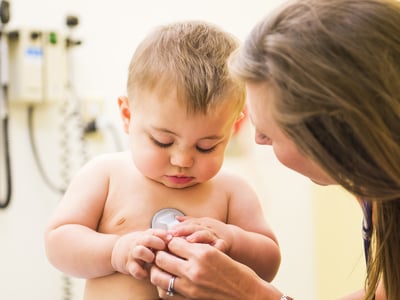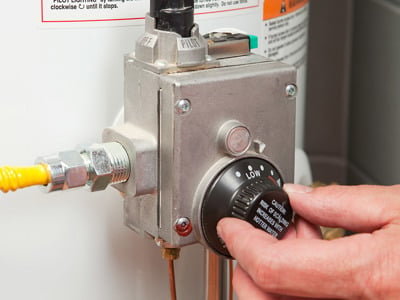- Doctors & Departments
-
Conditions & Advice
- Overview
- Conditions and Symptoms
- Symptom Checker
- Parent Resources
- The Connection Journey
- Calm A Crying Baby
- Sports Articles
- Dosage Tables
- Baby Guide
-
Your Visit
- Overview
- Prepare for Your Visit
- Your Overnight Stay
- Send a Cheer Card
- Family and Patient Resources
- Patient Cost Estimate
- Insurance and Financial Resources
- Online Bill Pay
- Medical Records
- Policies and Procedures
- We Ask Because We Care
Click to find the locations nearest youFind locations by region
See all locations -
Community
- Overview
- Addressing the Youth Mental Health Crisis
- Calendar of Events
- Child Health Advocacy
- Community Health
- Community Partners
- Corporate Relations
- Global Health
- Patient Advocacy
- Patient Stories
- Pediatric Affiliations
- Support Children’s Colorado
- Specialty Outreach Clinics
Your Support Matters
Upcoming Events
Colorado Hospitals Substance Exposed Newborn Quality Improvement Collaborative CHoSEN Conference (Hybrid)
Monday, April 29, 2024The CHoSEN Collaborative is an effort to increase consistency in...
-
Research & Innovation
- Overview
- Pediatric Clinical Trials
- Q: Pediatric Health Advances
- Discoveries and Milestones
- Training and Internships
- Academic Affiliation
- Investigator Resources
- Funding Opportunities
- Center For Innovation
- Support Our Research
- Research Areas

It starts with a Q:
For the latest cutting-edge research, innovative collaborations and remarkable discoveries in child health, read stories from across all our areas of study in Q: Advances and Answers in Pediatric Health.


Acute Marijuana Intoxication
Kids aren’t just mini adults. In fact, they’re incredibly different. That’s why they need incredibly different care.

Get Care Now
From emergency to urgent care to 24/7 pediatric advice, we’re here to help in the heat of moment.
What is marijuana?
Marijuana* (also known as cannabis, weed or pot) is a plant that is commonly used for its psychoactive effects. It is also used medicinally for conditions like chronic pain, cachexia and seizures.
There are various ways to consume marijuana, which include inhalation through smoking or vaporization, and ingestion in edible forms such as baked goods, candies and beverages. Exposure of marijuana products to kids and teens in Colorado has increased since the increased availability of both medical and recreational marijuana in Colorado.
* Parents and caregivers: Marijuana should be treated as any other drug or medicine, and should be kept out of reach of children. Learn more about safe storage.
What is acute marijuana intoxication?
Acute marijuana intoxication occurs when a person experiences immediate adverse effects from marijuana. This typically occurs after smoking or ingesting marijuana products, and can occur at all ages, and to naïve and chronic users.
What causes marijuana intoxication or "getting high"?
Delta-9-tetrahydrocannabinoid (commonly known as THC) is the main psychoactive component in marijuana and is responsible for most symptoms seen after marijuana use. This is the chemical that causes the marijuana "high."
THC affects many different areas of the brain, which leads to the symptoms of marijuana intoxication like increased appetite, changes in mood, sleepiness and balance problems. Learn more about marijuana from the Colorado Department of Public Health and Environment (CDPHE) in their marijuana fact sheets.
How do the symptoms of smoking differ from ingestion?
After smoking or inhaling marijuana, the onset of symptoms is quick (within 5 to 30 minutes), but symptoms typically do not last long (a couple of hours).
In contrast, after ingestion of marijuana in the form of food or beverage, the onset of symptoms can take as long as one to four hours, and symptoms can last for several hours.
How does this differ in younger kids?
The most common overdose incidents in children occur when the drug has been combined with food in an "edible" form of marijuana. This is because marijuana ingested in this manner can have a stronger and prolonged effect, especially in children under the age of 12 years old.
In these instances, kids mistake "edible" marijuana (like gummy bears, brownies, lollipops, etc.) for regular food and eat it unknowingly. Small children are at higher risk based on their size and weight. Because edible products have very high amounts of marijuana, the symptoms are more severe on a small child. Many young children who consume marijuana edibles require hospital admission due to the severity of their symptoms.
What are the long-term effects of marijuana on children?
The long-term effect of acute marijuana exposures on children is unknown, as it has not been systematically studied. Because we don't yet have the research and science findings to know the full effects, doctors do not fully understand marijuana's long-term effects on children after acute exposures. Read tips from our experts on how to talk to your child about marijuana.
What are the signs and symptoms of marijuana intoxication in kids and teens?
Symptoms can range from being unbalanced (loss of coordination), to any degree of sleepiness (from mild drowsiness to being unable to "wake up"), to poor respiratory effort (trouble breathing). Less commonly, children have developed coma and need a breathing tube and ventilator.
Why do symptoms tend to be more severe in children?
Most cases of marijuana intoxication involve young children (of toddler age) and the unintentional ingestion of high-potency edible products. In these instances, kids mistake "edible" marijuana for regular food – like gummy bears, brownies, lollipops – and eat it unknowingly.
Because edible products have very high amounts of marijuana, the symptoms are more severe in a small child. Many young children who consume marijuana edibles require hospital admission due to the severity of their symptoms.
How are signs and symptoms of edible products different from inhaled marijuana?
Because edible products have high concentrations of THC, they can lead to severe symptoms when ingested by a young child. These symptoms can also last much longer than inhaled marijuana.
What tests are used to diagnose marijuana overdose in kids?
A urine sample (known as a urine toxicology screen) is typically used to test for marijuana exposure, and it can detect marijuana for days or weeks after use. Bloodwork can also be done to test for the amount of tetrahydrocannabinoid (THC) in the bloodstream.
What to expect from urine and blood tests
Urine tests are easy to obtain, and a small amount can be collected when the child urinates. Occasionally, if the child is young or is very symptomatic (has more profound symptoms of marijuana overdose), a urine catheter may need to be placed for medical treatment along with testing.
How do doctors diagnose marijuana overdose?
Healthcare providers at Children's Hospital Colorado diagnose a marijuana overdose based on a combination of the patient's:
- History of marijuana exposure (or potential access to marijuana products)
- Clinical symptoms found during a physical exam
- Additional test results such as urine analysis or blood work
At Children's Colorado, our goal is to keep kids out of the hospital by educating parents and the community about safe storage to prevent accidental marijuana ingestion.
The importance of safe storage
Marijuana should be treated as any other drug or medicine and kept up high and out of reach of children.
Marijuana and edible products should be kept in their original child-resistant packaging. Furthermore, edible products should not be kept or stored with other non-marijuana food products.
How is marijuana overdose treated?
If your child accidentally ingests marijuana, doctors at Children's Colorado recommend the following treatment:
- If you have concerns that your child has become very ill (he/she is not breathing well, unable to be awoken, or other serious concerns), call 911 or go immediately to the closest emergency department.
- Otherwise, call your primary care physician or the Rocky Mountain Poison and Drug Center at 1-800-222-1222.
- Make sure your child is not at risk from falling from the symptoms and is in a safe and supervised area. Remove anything that may be in your child's mouth.
Why choose Children's Colorado if your child is exposed to marijuana?
At Children's Colorado, we have sub-specialists in emergency medicine, toxicology, general pediatrics and critical care who have experience in caring for children exposed to marijuana. Our team of experts will work together to ensure your child receives the best care in a compassionate, kid-friendly environment.
Next steps
-
Would you like to learn more about us?
Learn more about our Urgent Care Services -
Do you need to talk to a nurse?
Find out how to call our hotline

Compassionate care, wherever you are
We’re here when you need us. Telehealth appointments are available across every specialty, so you can get the high-quality care we’ve always offered from the comfort, privacy and convenience of home.
See if telehealth is right for you
Get to know our pediatric experts.


Santhi Reddi, MD
Emergency Medicine - Pediatric, Pediatrics
Patient ratings and reviews are not available Why?

Blaine Allen, CPNP-AC
Certified Pediatric Nurse Practitioner, Certified Family Nurse Practitioner
Patient ratings and reviews are not available Why?

Colette Fish, FNP-BC
Certified Family Nurse Practitioner
Patient ratings and reviews are not available Why?



 720-777-0123
720-777-0123






